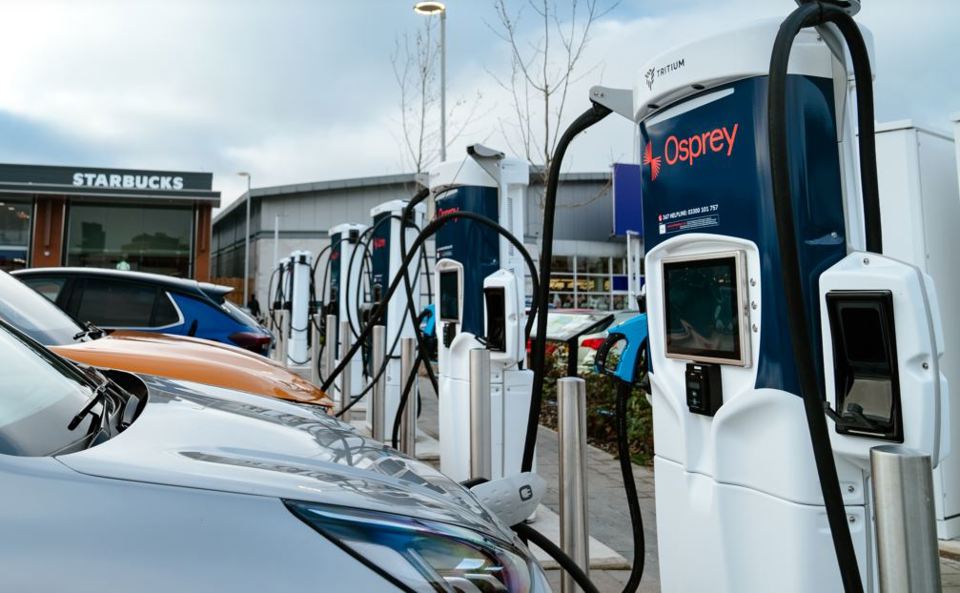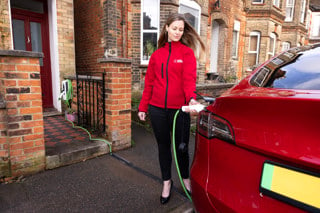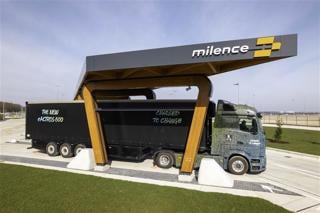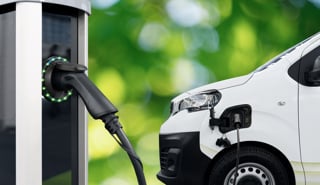The Government has announced that drivers and businesses will no longer need to submit planning applications to install electric vehicle (EV) charge points.
Future of roads minister, Lilian Greenwood, confirmed the new rules will take effect from today (Thursday, May 29).
It is hoped that by cutting down on paperwork, more EV owners with a driveway will find it easier, quicker and cheaper to install a private charge point and power up their EVs at home.
With planning changes also applying to workplace and public charge points, businesses will be able to install new sockets faster and for less, says the Government, helping increase the number of public charge points so that EV owners can charge more easily, wherever they live and drive.
Greenwood said: “We’re cutting down on paperwork to power up the EV revolution so that drivers, businesses and those looking to make the switch will have more charge points to power from and less red tape to deal with.”
Government support currently allows people renting or owning a flat and those with on-street parking to receive up to £350 off the cost of installing a home charger.
Jack Cousens, head of roads policy for the AA, said: “With a target of 300,000 publicly available chargers by 2030, Government should be doing all it can to help reach this milestone.
“Removing the planning rules is a positive step and will help accelerate installations.
“The crucial element is ensuring grid connection in a timely manner. This is especially important in rural locations and areas where there is no dedicated off-street parking.”
RAC senior policy officer Rod Dennis added: “Getting more drivers to opt for an EV next time around depends on reducing the costs and removing the obstacles some people face - and that includes having to seek planning permission for a home charger.
“Having one installed unlocks the prospect of incredibly cheap charging, so homeowners will welcome this announcement.
“It remains the case, however, that the relatively high cost of public charging, especially at rapid and ultra-rapid sites - which is so important for people who have no option of charging up cheaply at home - still needs to be tackled."
The UK public charge point network continues to grow. Recent data showed that the number of public electric vehicle charging devices grew by 28% in the past year, with almost 17,000 charge points added to the UK network since April 2024.
Lewis Gardiner, operations director at Osprey Charging Network, welcomed the Government’s decision, calling it a “practical change” that will make a real difference on the ground.
“Removing the need for planning permission for essential electrical infrastructure like substations across the majority of sites will save months of delays, reduce costs and accelerate the delivery of the rapid charging hubs drivers need,” he said.
“It’s the result of months of collaboration between industry and Government and we’re proud to have played a key role in making it happen.”
Patrick Dunne, Sainsbury’s chief property and procurement officer and MD of Smart Charge, added: “We welcome this new streamlined approach to installing charge points, which will help accelerate the nation’s adoption of EVs.”
Delvin Lane, CEO of InstaVolt, also welcomed the move. “Anything that helps remove barriers to EV adoption and gives all drivers confidence in the infrastructure - helping remove range anxiety - is a strong move in the right direction,” he said.
“We look forward to continued support from the Government as the UK transitions to EVs.”
John Lewis, Chargy CEO, added: “This is a clear signal of policy certainty in the UK’s EV sector, exactly what investors and charge point operators need to unlock the scale of investment required to build a world-class public charging network.”























Login to comment
Comments
No comments have been made yet.